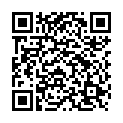|
|
|
| Module code: IBB-442 |
|
|
4V (4 hours per week) |
|
5 |
| Semester: 4 |
| Mandatory course: no |
Language of instruction:
English |
Assessment:
Written exam (90 minutes / can be repeated semesterly)
[updated 25.11.2019]
|
IBB-442 (P420-0244) International Business, Bachelor, ASPO 01.10.2020
, semester 4, optional course
Suitable for exchange students (learning agreement)
|
60 class hours (= 45 clock hours) over a 15-week period.
The total student study time is 150 hours (equivalent to 5 ECTS credits).
There are therefore 105 hours available for class preparation and follow-up work and exam preparation.
|
Recommended prerequisites (modules):
IBB-240 Marketing and Market Research
[updated 14.09.2025]
|
Recommended as prerequisite for:
|
Module coordinator:
Prof. Dr. Frank Hälsig |
Lecturer:
Prof. Dr. Frank Hälsig
[updated 04.02.2020]
|
Learning outcomes:
After successfully completing this module, students will:
- know and be able to explain the principle, theoretical approaches, and determinants of international marketing,
- know the decision fields of international marketing and be able to apply them to companies from different industries,
- be able to systematically analyze, critically evaluate and apply different options of market engagement and
forms of activity in foreign markets,
- be familiar with the essential features of international marketing and be able to develop appropriate options for
companies taking into account the company´s respective international marketing strategy,
- be able to analyze, critically evaluate and apply the basic options for standardization and differentiation of the
international marketing mix,
- understand the relevance of the coordination perspective and reflect upon the extent of feedback effects
between country markets,
- be familiar with the theoretical principles and perspectives of international marketing.
[updated 04.02.2020]
|
Module content:
- Determinants of international marketing
- Basic decision-making variables in international marketing: market selection, market entry, timing and
standardized or adapted marketing activities
- Decision-making options in the field of marketing instruments against the
background of international market segmentation
- Decisions regarding the product or program range in
international market cultivation (especially the degree of standardization against the
background of the differentiation from culture-free vs. culture-bound products)
- Design and coordination of communication tools in the
context of intercultural characteristics
- Special features of international sales and distribution policy:
transnational distribution systems, global account management,
interculturally varying incentive effects, consideration of different international
distribution channels and structures
- Challenges of international price and condition management:
pricing information and decisions, as well as pricing and price maintenance,
the consideration of different discount and condition structures,
international price differentiation, the problem of corruption
[updated 04.02.2020]
|
Teaching methods/Media:
Lecture with exercises and case studies
[updated 04.02.2020]
|
Recommended or required reading:
- Berndt, R., Fantapie Altobelli, C., Sander, M. (aktuellste Auflage), Internationales Marketing-Management, Heidelberg
u.a.
- De Mooji, M. (aktuellste Aufl.), Global Marketing and Advertising: Understanding Cultural Paradoxes, Thousand Oaks,
CA
- Guenzi, P., Geiger, S. (ed.), Sales Management: A Multinational Perspective, Basingtoke UK, u.a., (latest edition)
- Hollensen, S. (latest edition), Global Marketing: A Decision-Oriented Approach, Harlow, England
- Kotabe, M., Helson, K. (latest edition), Global Marketing Management, international student edition, Hoboken, N.J.
- Morschett, D., Schramm-Klein, H., Zentes, J. (latest edition): Strategic International Management: Text and
Cases, Wiesbaden
- Morschett, D., Schramm-Klein, H., Zentes, J. (latest edition): Strategic Retail: Text and Cases, Wiesbaden
- Müller, S., Gelbrich, K. (latest edition), Interkulturelles Marketing, München
- Nalge, T. T., Hogan, J.E. (latest edition), The Strategy and Tactics of Pricing, Upper Saddle River, N.J.
- Zentes, J., Swoboda, B., Schramm-Klein, H. (latest edition), Internationales Marketing, München
[updated 29.01.2020]
|

